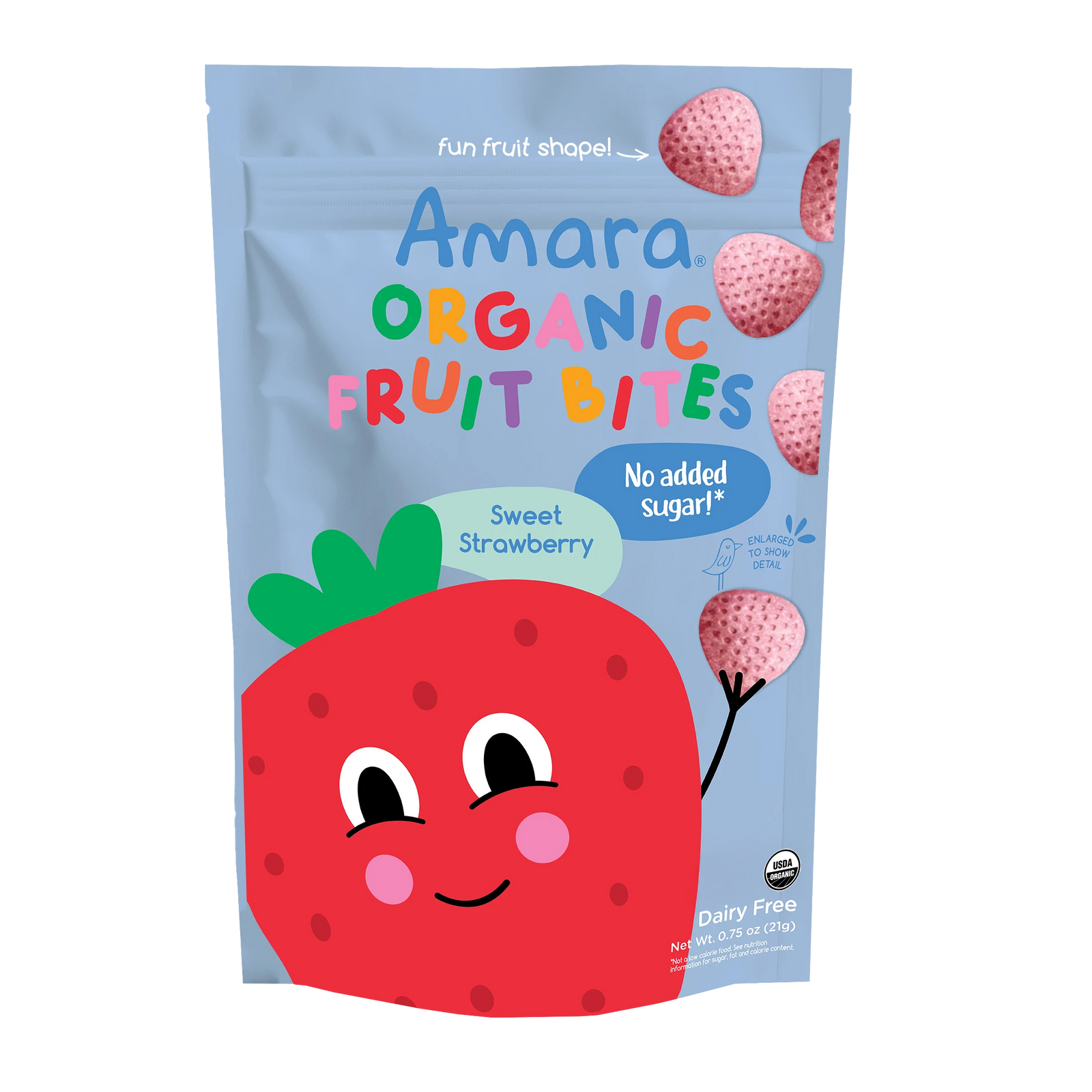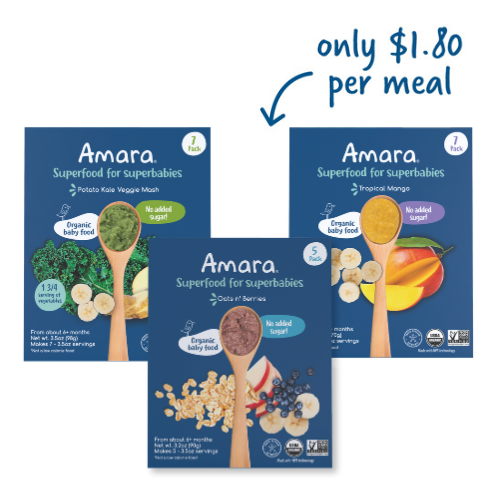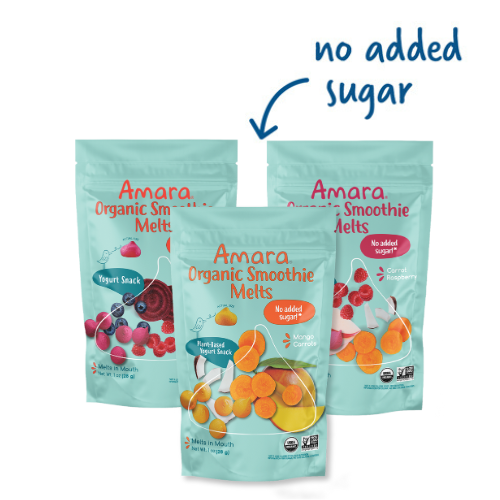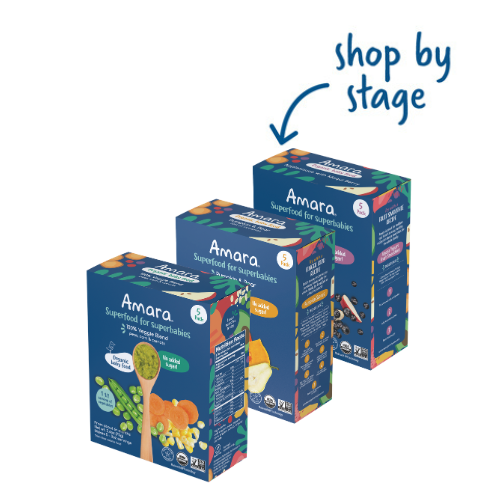
Caffeine is addictive.Caffeine causes insomnia.Caffeine has no health benefits.Caffeine is full of health benefits. Caffeine is harmful for women trying to get pregnant.When you’re pregnant, you shouldn’t drink coffee. It’s fine to drink coffee when pregnant.
We’ve heard it all before.
There is a lot of conflicting information out there about caffeine and its health consequences, especially for pregnant women, because there are a lot of conflicting scientific studies about the topic. So, when you Google this topic, the advice is often confusing.
We have decided to explore this topic, giving you—our Amara readers—a well-researched deep dive into this much-talked-about stimulant.
First things first: what is caffeine?
Caffeine is a naturally occurring central nervous system stimulant found in many foods, beverages, dietary supplements, and drugs. (To get technical, it’s an alkaloid from the methylxanthines family.) It’s known to improve vigilance, attention, and reaction time, particularly in sleep-deprived individuals. Many of us know it best in the form of coffee, the most common way that caffeine enters the human food chain. (Energy drinks, a rising market since the 1980s, is another common way, at least in the U.S., that caffeine enters our systems.)
But did you know that caffeine has other uses as well? For instance, it occurs naturally in certain plant leaves, seeds, and fruits, where it serves as an herbicide, insect repellant, and even attractant for pollination.
It is also employed to treat very ill and premature newborns afflicted with apnea (temporary cessation of breathing). Other uses include as an adjuvant (an aid) in pain therapy. In the sports world, caffeine is known to improve endurance and muscle strength.
There are almost no age, gender, geographical, or cultural barriers to the consumption of caffeine: it is the most widely consumed psychoactive substance in history. Its availability is nearly unlimited, and in Europe it is not subject to state regulation. In the U.S., the FDA has regulated caffeine as an ingredient in food since 1958, when the Food Additives Amendment to the Federal Food, Drug, and Cosmetic Act was enacted. This is why, on Coca-Cola bottles and cans, for instance, you see how much caffeine is contained.
For reference, coffee contains about 85 to 110 mg of caffeine per cup, tea about 40-50 mg/cup, soda beverages 30 to 45 mg/serving, cocoa about 5 mg/cup, and chocolate 25 mg/small bar.

What are its health benefits?
Caffeine consumption in adults has many recognized benefits, including helping to prevent:
-neurological diseases (e.g., Parkinson’s and Alzheimer’s diseases)
-cardiovascular diseases (e.g., coronary heart disease and stroke)
-certain cancers (e.g., prostate cancer, melanoma, liver cancer, and breast cancer)
-liver diseases (e.g., liver fibrosis and liver cirrhosis)
-type 2 diabetes
The caveat to this is that the FDA—and many other agencies across the world (including in Europe, Canada, New Zealand, India, and Australia—recommend healthy, non-pregnant adults restrict their caffeine intake to around 400 milligrams a day (~4-5 cups of coffee) to take advantage of its health benefits while avoiding negative ones. The FDA has not set a level for children, but the American Academy of Pediatrics discourages the consumption of caffeine and other stimulants by children and adolescents.
What are the negatives of caffeine?
Many experts conclude that caffeine is safe within a typical dose amount. But overconsumption of caffeine can cause or contribute to insomnia, nervousness, restlessness, nausea, headache, a feeling of unhappiness, increased heart rate, and other cardiovascular effects like elevated blood pressure. And a sudden decrease in caffeine may cause withdrawal symptoms such as fatigue, irritability, headache, and difficulty focusing on tasks. Indeed, habitual consumption leads to physical dependence, which is why when we suddenly stop drinking coffee, we experience behavioral and physiological effects.
But only in very high doses can caffeine be really unsafe, to the point of fatality, but—again—this is rare. The FDA estimates that toxic effects like seizures can be observed after the rapid consumption of around 1,200 milligrams of caffeine (~12 cups!), or 0.15 tablespoons of pure caffeine.
Pure caffeine, often found in dietary supplements, should be treated with extreme caution. It often comes in highly concentrated powder or liquid form, where just one teaspoon of powder can contain the same amount of caffeine as 28 cups of coffee, and a half cup of liquid concentrate contains the equivalent of more than 20 cups of coffee. Yikes! And what makes it scarier is that dietary supplements are often marketed in bulk packaging with up to thousands of servings per container, requiring the consumer to measure out what they think is a safe serving. The FDA, importantly, does not regulate them in the same way as medications.
But again, aside from these supplements, most of us get caffeine from a few cups of coffee which—again—many experts say, “don’t worry about.”

OK—but what about pregnant women?
If you are pregnant, trying to conceive, or have been pregnant, you’ve probably heard that caffeine consumption during pregnancy increases certain risks, namely the risk of pregnancy failure and gestational complications like low birth weight. In fact, in 1980, the FDA issued a warning advising pregnant women to restrict or abstain from the drug following studies (using rodents, mind you) that showed harmful effects to fetuses.
And yet, many pregnant women today consume caffeine. In recent studies from the U.S., anywhere from 70 to 82% of pregnant women polled reported consuming caffeine daily (and for comparison’s sake, studies show it’s around 91% in France).
So what gives?
Well, for one, updated studies (post-1980) have reassured many medical experts: many (not all, but many) currently maintain that under a certain amount, caffeine consumption during pregnancy is most likely safe for the fetus.
The American College of Obstetricians and Gynecologists advises that pregnant women may safely consume up to 200 mg of caffeine per day (~2 cups of moderate-strength coffee), and the same advice is contained in the Dietary Guidelines for Americans. Similarly, the European Food Safety Authority states that maternal consumption of caffeine up to 200 mg per day does “not give rise to safety concerns for the fetus”, and the UK National Health Service advises pregnant women to “limit” daily intake to 200mg. The Swedish National Food Agency recommends an intake of less than 300 mg caffeine per day during pregnancy. And the World Health Organization likewise says that daily caffeine consumption below 200–300 mg is a safe dosage for pregnant women.
Furthermore, many medical researchers and practitioners note that the effects of caffeine on pregnancy outcomes vary greatly from individual to individual because there is wide variation in both how sensitive people are to the effects of caffeine and how fast they metabolize it. Furthermore, scientists point to how genetics, epigenetics (how your behaviors and environment can affect your genes), and environmental conditions can predispose certain individuals to higher sensitivities to caffeine while pregnant.
Basically, when it comes to caffeine dosage recommendations, it’s more nuanced than we previously understood.

Let’s dig into this more: what exactly does caffeine do to a pregnant woman and her baby?
In adults, caffeine is metabolized by enzymes in the liver (specifically, cytochrome P450 enzymes). As a result, over 90% of ingested caffeine in adults get metabolized before it reaches the kidneys.
But fetuses lack this enzyme system.* And when the mom consumes caffeine, it crosses the placenta, exposing the fetus to concentrations of the drug similar to levels in the mother.
(*In fact, this enzyme system is primitive even in infancy. In newborns, more than 80% of caffeine consumed (via their moms‘ breastmilk) passes through their kidneys unmetabolized. As a result, infants of caffeine-consuming mothers can experience caffeine withdrawal symptoms much like adults, including disturbed sleep, vomiting, tremors, and irregular heartbeat and respiration.)
As women advance through pregnancy, their “clearance of caffeine“—how much and quickly they metabolize—changes. In the first trimester, women can process caffeine much like they do when not pregnant. But their ability to do so—that rate—slows to one-half and then to about one-third during the second and third trimesters. As part of this, caffeine’s half-life (how long it lasts in our systems/bodies) increases in the first trimester from the usual adult rate of about 2.5-5 hours to about 15-18 hours by the 38th week of pregnancy.
For fetal health, exposure to caffeine can lead to “vasoconstriction in the uteroplacental circulation“—meaning, it can cause blood vessels involved maternal blood flow to narrow, constricting the exchange of oxygen and nutrients to the baby. This can, in turn, affect the baby‘s growth and development, leading to possible outcomes of preterm birth, low birth weight, and miscarriage. Studies show that children born small for their age have an increased risk of cardiovascular disease later in life and a higher chance of impaired neurodevelopment during childhood.
You might be asking yourself: if this ^ is true, why did my doctor say I could drink 200 mg of coffee a day while pregnant?
Many medical researchers and practitioners distinguish between high, moderate, and low intakes of caffeine when they advise about it—a low to moderate dose being 200-300 mg or less.
Scientists established this threshold from recent studies. One of the largest ongoing cohorts—where 64,000 full-term pregnant women in Norway were recruited from 1998 to 2008—showed that low to moderate caffeine consumption during pregnancy was not associated with any persistent adverse effects concerning the child’s neurodevelopment up to 8 years of age.
So many experts consider caffeine a significant risk for pregnancy only when moms-to-be are consuming large quantities of caffeine. In the language of coffee, a high intake could be considered ~3·5 to 7 cups of coffee per day and a very high caffeine intake as ≥7 cups of coffee per day.
At these levels, some studies suggest a significant increase in the risk of childhood acute lymphoblastic leukemia. Similarly, some studies from the U.S., Netherlands, Ireland, and Norway correlate high dosages of prenatal caffeine to babies with higher body mass indexes, total body fat, and liver fat, contributing to childhood obesity.
Of course, here’s the tricky part of medical science: it’s an ever-evolving project. To this point, some researchers disagree on what exactly constitutes a high intake of caffeine, versus a moderate or low dose. Even more muddying, some researchers have concluded that any caffeine intake is harmful to fetuses.
One meta-analysis, for instance, showed that the risk of pregnancy loss increases by 19% for each increase of 150 mg/day of caffeine, and 8% for each increase of 2 cups of coffee per day. Another meta-analysis found that 100 mg of caffeine per day during pregnancy was associated with a 14-26% increased risk of pregnancy loss. Additionally, the analysis found that pregnant women who ingested 2 or more cups of coffee per day before pregnancy had a higher risk of bleeding in early pregnancy.
Other studies, though, have concluded low and moderate amounts of caffeine have no effect. And others claim that low and moderate amounts of caffeine are beneficial for pregnancy, reducing the risk of gestational diabetes, as one example.
Confusing!
One 2015 study underscored this ambiguity, concluding: “There is insufficient evidence to confirm or refute the effectiveness of caffeine avoidance on birthweight or other pregnancy outcomes. There is a need to conduct high-quality, double-blinded RCTs [randomly controlled trials] to determine whether caffeine has any effect on pregnancy outcomes.”
Many medical experts would agree with this premise: we need more studies. And that’s because each existing study—while useful—is limited. One study alone cannot answer all our questions, in part because it’s difficult to isolate caffeine intake and pregnancy as the only 2 variables in a woman’s and her baby’s health. What about the mom’s age? Race/ethnicity? Genetic health and predispositions? Her body mass index? Does she smoke? What’s her personality and stress level? Other consumption habits? Kinds of caffeine consumed (coffee, soft drinks, etc.)? Exact amounts of caffeine consumed?
This last question is particularly thorny. Many substances contain caffeine—dark chocolate, for instance—so when we tally up how much caffeine we *think* we had in a day, accurate estimates are hard to come by. On top of that, one person’s—or one company’s—cup of coffee might be stronger than the next. There’s a lot of variability even in commonly recognized sources of caffeine.
To this point, while high maternal caffeine intakes are more consistently associated with a higher risk of pregnancy loss and other negative results, the outcomes for moderate and low caffeine use have been mixed—due to difficulties in measuring caffeine intakes and differences in participants and studies. That said, it’s worth reiterating that ACOG and other expert bodies currently advise that up to 200 mg/day is most likely safe.

So what should you do if you are pregnant, trying-to-conceive, or breastfeeding?
- Talk to your OB-GYN and/or pediatrician about your concerns.
- It’s OK if you decide to eliminate caffeine completely! For some of us, any risk, even if small or unlikely, is too much when it comes to our families.
- And it’s also OK if you decide to consume a moderate or low amount of caffeine! Your body, your family.
- Either way, don’t be critical if and when other moms do things differently. Let’s support each other.
- If you’re used to consuming caffeine every day and you want to cut back or eliminate it altogether, it’s best to do so gradually. Stopping abruptly can cause withdrawal symptoms such as headaches, anxiety, and nervousness. Unlike opioid or alcohol withdrawal, caffeine withdrawal is not considered dangerous, but it can be unpleasant. You may want to talk to your healthcare provider about how to cut back.
- If you want to keep consuming caffeine, keep track of it. (After all, don´t forget that caffeine is in many beverages and foods, not just coffee.) There are several online databases that provide estimates of caffeine in certain foods and beverages like coffee and tea. However, keep in mind that the amount in these brewed beverages can vary depending on such factors as how and where the coffee beans and tea leaves were grown and processed and how the beverage product is prepared.
- Last but not least: if you decide to have that cup of coffee, while respecting the caffeine intake recommendations, enjoy it!!
We at Amara care about caffeine consumption and pregnancy because we care about women’s and babies’ health—which is why we’re in the business of nutrient-dense baby and toddler food. Amara’s baby blends and toddler snacks have no additives, are 100% non-GMO and organic, and are made from only a few—very real, very transparent—ingredients. Only the best for our babies.

***
Article researched by:
Amara's Chief Nutritionist: Sonia A. Schiess, PhD in Nutrition, specialized in the introduction of solids and liquids to infants. Sonia's passion started when she was studying nutrition and dietetics in university, completing a post degree in Human Nutrition. Later on, she completed her PhD as a nutritionist, with a focus on introducing food in the first year of a baby's life. Her wide experience gives her a unique perspective, drawing from her time in clinics, hospitals, independent consulting and university research. She's authored several papers including "Introduction of complementary feeding"; "Introduction of potentially allergenic foods in the infant's diet during the first year of life" and "Intake of energy providing liquids during the first year of life" in five European countries. The combination of Sonia's science and our chef's magic ensures every Amara product is not only optimized for your baby's health but is delicious as well.
References:
https://www.fda.gov/consumers/consumer-updates/spilling-beans-how-much-caffeine-too-much
Berglundh S et al., Maternal cafeine intake during pregnancy and child neurodevelopment up to eight years of age—Results from the Norwegian Mother, Father and Child Cohort Study. European Journal of Nutrition 2021
Chen L-W et al., Maternal caffeine intake during pregnancy and risk of pregnancy loss: a categorical and dose–response meta-analysis of prospective studies. Public Health Nutrition 2015
Gahr M, Caffeine, the most frequently consumed psychostimulant: a narrative review article. Fortschr Neurol Psychiatr 2020
Grosso G et al., Coffee, Caffeine, and Health Outcomes: An Umbrella Review. Annu. Rev. Nutr. 2017
Jahanfar S & Jaafar SH, Effects of restricted caffeine intake by mother on fetal, neonatal and pregnancy outcomes (Review). Cochrane Database of Systematic Reviews 2015
James JE, Maternal caffeine consumption and pregnancy outcomes: a narrative review with implications for advice to mothers and mothers-to-be. BMJ Evidence-Based Medicine June 2021
Lassi ZS et al., Preconception care: caffeine, smoking, alcohol, drugs and other environmental chemical/ radiation exposure. Reproductive Health 2014
Qian J et al., Impacts of Caffeine during Pregnancy. Trends Endocrinol Metab. 2020
Román-Gálvez MR et al., Caffeine Intake throughout Pregnancy, and Factors Associated with Non-Compliance with Recommendations: A Cohort Study. Nutrients 2022
Rosenfeld LS et al., Regulatory status of caffeine in the United States. Nutrition Reviews 2014
Voerman E et al., Associations of maternal caffeine intake during pregnancy with abdominal and liver fat deposition in childhood. Pediatric Obesity 2020
Wikoff D et al., Systematic review of the potential adverse effects of caffeine consumption in healthy adults, pregnant women, adolescents, and children. Food and Chemical Toxicology 2017








Leave A Comment